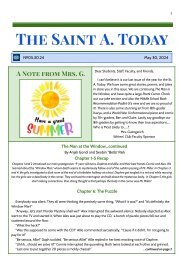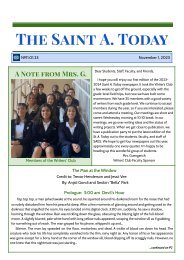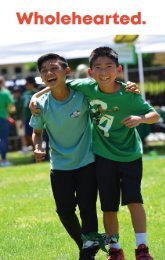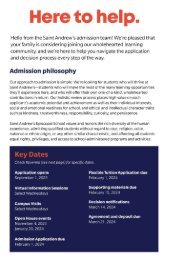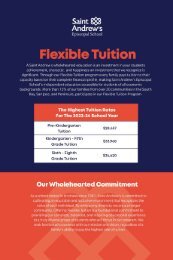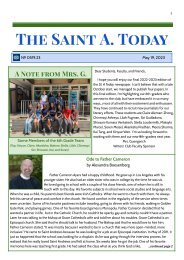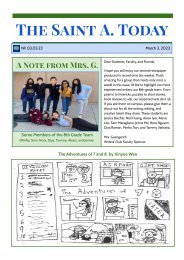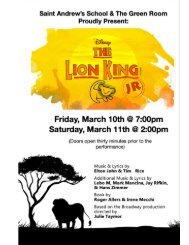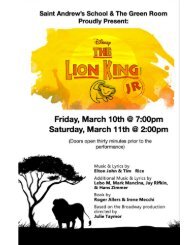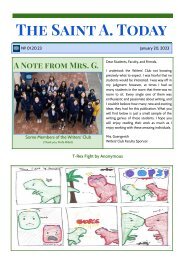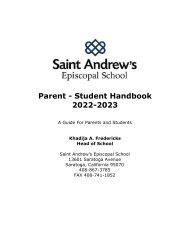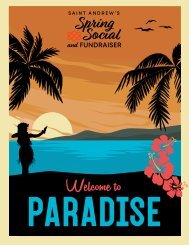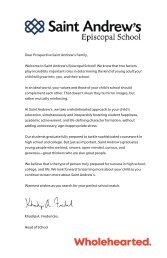SAES_JULY '22_Magazine
You also want an ePaper? Increase the reach of your titles
YUMPU automatically turns print PDFs into web optimized ePapers that Google loves.
The first team to finish their work was the mathematics<br />
committee that recommended a transition to the<br />
Bridges in Mathematics text developed by The Math<br />
Learning Center for our pre-kindergarten through<br />
fifth grade classrooms. The teachers love Bridges<br />
because of how it aligns with Saint Andrew’s approach<br />
to developing deep thinkers and problem solvers. The<br />
classrooms emphasize collaboration and sensemaking,<br />
and it allows for differentiating for the needs of each<br />
student. Additionally, the school launched participation<br />
in the Noetic Learning Math Contest in our lower school<br />
grades to complement the MATHCOUNTS and AMC 8<br />
programs available in middle school.<br />
While their work is ongoing, the Language Arts<br />
committee observed that many schools serving<br />
communities of learners similar to Saint Andrew’s have<br />
or will be moving to the workshop model to teach<br />
literacy. Through this work, and through the expertise<br />
of several committee members, a strong interest<br />
emerged in exploring the workshop model for teaching<br />
language arts at Saint Andrew’s. The Language Arts<br />
faculty participated in several days of training in this<br />
model in June.<br />
The social studies committee reviewed how the<br />
integrated disciplines that comprise this area of study<br />
create a structure that builds the students’ capacity to<br />
construct arguments, reason with evidence, analyze<br />
relationships, and most importantly consider and<br />
engage with a variety of viewpoints. These skills are<br />
practiced and applied at every grade level to promote<br />
a community that embraces diverse perspectives<br />
and engages with difficult conversations. In this<br />
environment, we strive to nurture not only academic<br />
and historical thinking skills, but emotional intelligence,<br />
social awareness, and empathy in all students.<br />
S U M M E R 2 0 2 2 9




